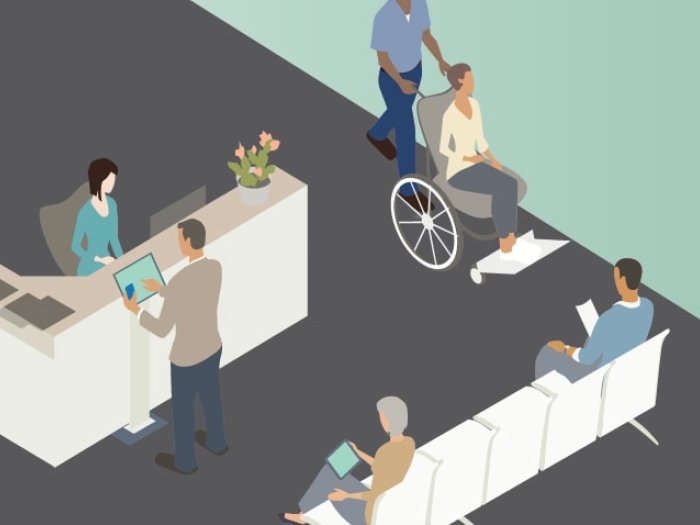A quiet event — the publication of a scholarly text — sparked a movement of examining and improving health care for generations of Americans.
7:00 AM
Author |

It was July of 1966. Lyndon Johnson was in the White House, "You Can't Hurry Love" played on the radio, Billie Jean King had won her first Wimbledon title and NASA was preparing to launch its first moon-orbiting spacecraft.
SEE ALSO: Medicaid Expansion Brings Hospitals Across-the-Board Relief
Another landmark event — albeit a quieter one — was also taking place.
Fifty years ago, University of Michigan public health professor Avedis Donabedian, M.D., M.P.H., published a research paper that provided a key framework for measuring and improving many facets of health care.
Titled "Evaluating the Quality of Medical Care," Donabedian's paper grew out of a national meeting in October 1965 that launched the U.S. government's formal effort to study health care economics and quality.
Only a few months before the paper's publication in the Milbank Quarterly journal, after all, the first wave of senior citizens had begun to get health insurance through a new federal program called Medicare.
For the author, a patient's well-being always came first.
"Health care is a sacred mission," Donabedian remarked later in his career, "a moral enterprise and a scientific enterprise, but not fundamentally a commercial one."
Today, his writing continues to form the basis for efforts in improving care in cancer, heart disease, diabetes, children's health and beyond — as well as initiatives to rate hospitals and also prevent errors and disease. It has affected the way hospitals, doctors and insurance companies are paid, too.
In July in the New England Journal of Medicine, a pair of U-M health care researchers reflected on the paper and its long-lasting influence.
"Professor Donabedian's landmark article created the framework that health care leaders and researchers around the world have used over the past 50 years to measure and improve the quality of care we deliver to patients," says co-author John Z. Ayanian, M.D., M.P.P., director of the Institute for Healthcare Policy and Innovation at U-M.
It's no surprise, then, that more than 470 U-M researchers from varied disciplines still draw on Donabedian's work to study and improve health care at the institute.
Ultimately, the secret of quality is love … If you have love, you can then work backward to monitor and improve the system.Avedis Donabedian, M.D., M.P.H.
An enduring legacy
An immigrant who had trained and practiced as a physician in Lebanon, Donabedian did not practice in the United States.
SEE ALSO: How Hospitals Can Improve Crisis Management When Tragedy Strikes
He could, however, assess the quality of American health care from a distinct perspective, says Howard Markel, M.D., Ph.D., a physician and medical historian who directs the U-M Center for the History of Medicine.
Momentum for the landmark article continued to build over the next three decades at U-M, where the work became part of multiple national efforts to deliver care that is safe, effective and equitable.
It remains "the most cited paper in the long history of the Milbank Quarterly and one of the most widely cited papers in American public health and health policy," says Markel, who with Ayanian co-authored the recent paper celebrating Donabedian's legacy.
Donabedian died in 2000 before he could see the full impact of his work in a world where digital medical records and the internet make it far easier for researchers, government agencies, health care providers and the public to use data about health care.
But the words and philosophy toward his life's mission endure.
"Doctors and nurses are stewards of something precious," Donabedian once said. "Ultimately, the secret of quality is love. You have to love your patient, you have to love your profession, you have to love your God.
"If you have love, you can then work backward to monitor and improve the system."

Explore a variety of health care news & stories by visiting the Health Lab home page for more articles.

Department of Communication at Michigan Medicine
Want top health & research news weekly? Sign up for Health Lab’s newsletters today!





